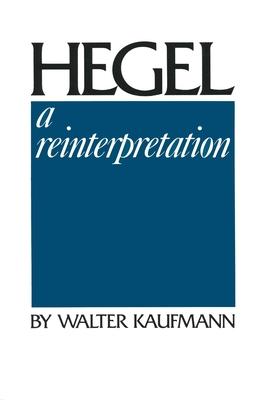The continuing discovery of important Hegel manuscripts and advances in the criticism of Hegel's works have set the stage for a major reevaluation of one of the greatest philosophers of all time. This volume constitutes the comprehensive reinterpretation of Hegel that has long been needed.
The first chapters are devoted to the influences of other German philosophers on Hegel, his early publication as they are relevant to his later writings, and his Phenomenology--in itself and as a key to understanding his terminology and dialectic. Examined next are the further elaboration of his thought in Logic; his famous system, as presented in various editions of the Encyclopedia; and his little-known views on history. A final chapter details in letters and contemporary reports Hegel's intellectual development.
